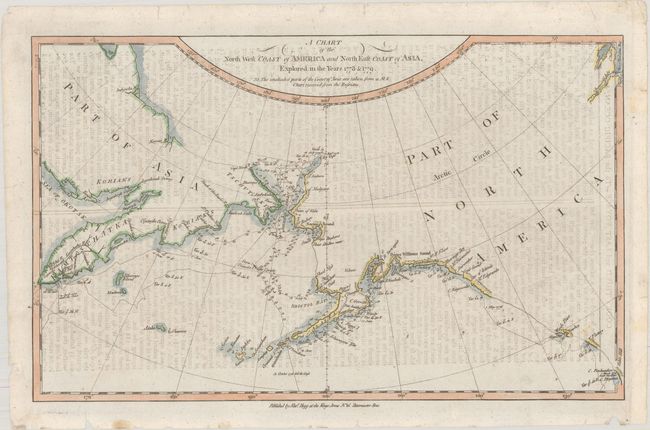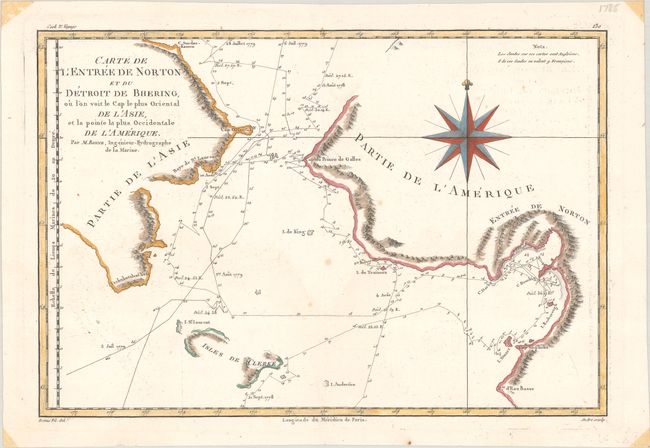Catalog Archive


Auction 189, Lot 681
NO RESERVE
"[Lot of 2] A Chart of the North West Coast of America and North East Coast of Asia, Explored in the Years 1778 & 1779 [and] Carte de l'Entree de Norton et du Detroit de Bhering, ou l'on voit le Cap le Plus Oriental de l'Asie..."
Subject: North Pacific Ocean
Period: 1785-88 (circa)
Publication:
Color: Hand Color
Size:
See Description
Download High Resolution Image
(or just click on image to launch the Zoom viewer)
(or just click on image to launch the Zoom viewer)

